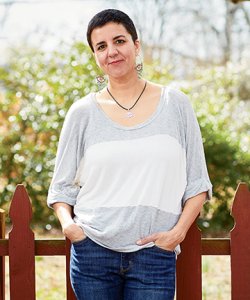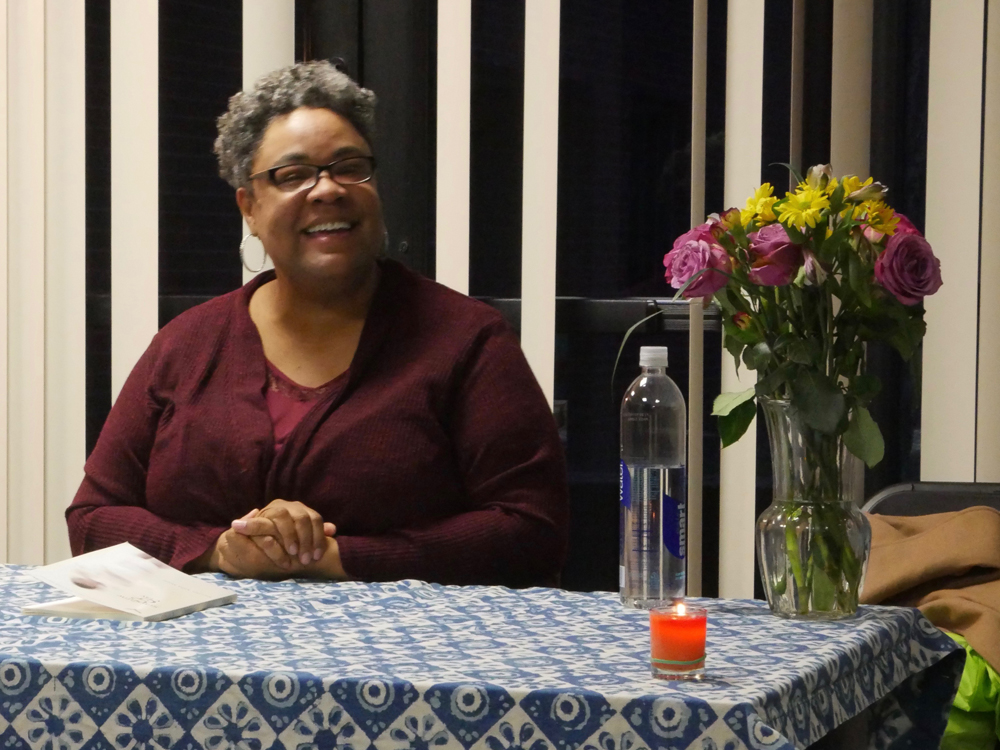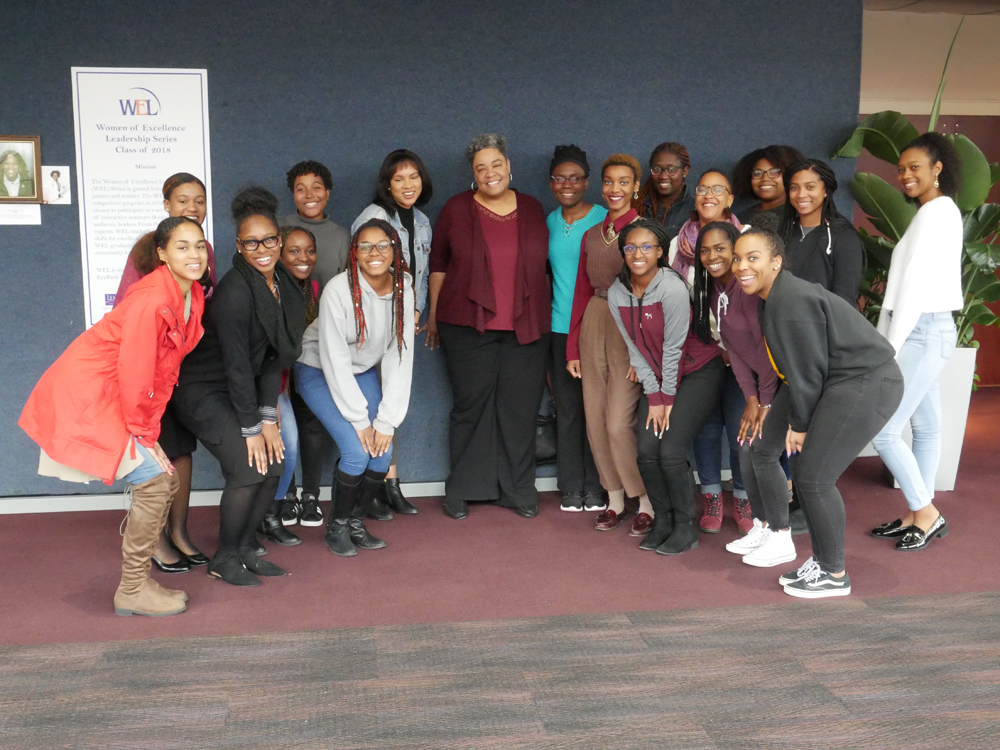Literary MagNet: Marcus Jackson

A poet discusses five journals that published poems from his second collection, Pardon My Heart.
Jump to navigation Skip to content

A poet discusses five journals that published poems from his second collection, Pardon My Heart.

Poet, publisher, editor, and activist Carmen Giménez Smith, whose fifth book, Cruel Futures, is out from City Lights, has some advice for other hardworking poets: We make art to reach readers, not to win a race.

The Pulitzer Prize–winning poet talks about his new book, Air Traffic: A Memoir or Ambition and Manhood in America.
“Spring is like a perhaps hand / (which comes carefully / out of Nowhere)arranging / a window,into which people look,” writes e. e. cummings, using the image of a hand and its actions to describe the nature of spring. His musings go on in the poem to make various imaginative leaps, but its twists and turns are held together by the shared exploration of a specific subject. This week, as spring comes on, try writing your own poem that begins with, “Spring is like…” and explores the season through simile.
Sarah RudeWalker is a poet and an assistant professor of English at Spelman College specializing in Rhetoric and Composition. Her scholarship focuses on the literature of African American social movements, and she is currently finishing a book manuscript on the rhetoric and poetics of the Black Arts Movement during the 1960s and 1970s. Her creative and scholarly work has appeared in Pluck! The Affrilachian Journal of Arts & Culture, Callaloo, and Composition Studies.
With the renewed support of Poets & Writers this school year, the Department of English at Spelman College has been able to deepen our offerings to the Atlanta University Center (AUC) and West End communities in Atlanta by featuring readings and workshops with brilliant African American women poets. This March, poet Kamilah Aisha Moon kicked off what we call “Lit Week,” a week of events coordinated by Spelman College faculty member and noted poet Sharan Strange and Spelman literary scholar Dr. Michelle Hite. The events aim to highlight the possibilities for art and activism that spin out from the dedicated study of English.
 Moon, currently an assistant professor of poetry and creative writing at Agnes Scott College, is a Pushcart Prize winner, Lambda Award finalist, and Cave Canem fellow with two published books of poetry: She Has a Name (Four Way Books, 2013) and Starshine & Clay (Four Way Books, 2017). The Poets & Writers–sponsored events with Moon on March 26 included a craft talk and workshop for student writers, and an evening reading for the community.
Moon, currently an assistant professor of poetry and creative writing at Agnes Scott College, is a Pushcart Prize winner, Lambda Award finalist, and Cave Canem fellow with two published books of poetry: She Has a Name (Four Way Books, 2013) and Starshine & Clay (Four Way Books, 2017). The Poets & Writers–sponsored events with Moon on March 26 included a craft talk and workshop for student writers, and an evening reading for the community.
Moon spent the afternoon talking about craft, inviting students to consider the power of their creative work to “bear witness.” This power, she observed, depends on the writer’s ability to practice craft with attention and empathy. One of the worst things we can do to each other, she observed, is to render someone invisible, and writers, who purposely aim to be “mirrors of treachery and glory,” have the power to do just the opposite: to help us see each other, and especially to see the familiar in a very different way. Moon invited students to interrogate this potential in their own work by presenting her work with disarming vulnerability, sharing early drafts and asking students to critique the choices that led to the final versions of her poems.
The reading that evening was lovingly intimate and set up in Spelman style: Audience members entered to find Moon seated at a candlelit table and listened to a recording of the a capella ensemble Sweet Honey in the Rock as they waited for the reading to begin. Moon opened the reading by noting that although she was never a student at Spelman herself, she fondly remembers the AUC as social stomping grounds for her and her friends. The reading that followed was exemplary of what can happen when the work of a black woman poet is honored within a black women-centered space.
Moon read from Starshine & Clay, whose Lucille Clifton-honoring title is meant to cover a lot of ground—the world of the personal and the public, of the grief and love and joy that exists between the starshine and the clay. Reading her poem “The Emperor’s Deer,” which she first wrote for Michael Brown, she asked the audience to hear it as mourning for the recently murdered Stephon Clark. Reading from the book’s third section, the author asked the audience to acknowledge the ways that personal traumas and historical traumas are intricately connected, to recognize that both the joy and pain of the personal persist while a public trauma blazes and burns. “I never read these,” she admitted, smiling.
We at Spelman commit to continuing to make spaces like these that invite this kind of intimacy between author and audience, especially in ways that honor the work of black women writers. We hope that Kamilah Aisha Moon knows that she has a home here, “on this bridge between / starshine and clay.”

Support for Readings & Workshops in Atlanta is provided by an endowment established with generous contributions from the Poets & Writers Board of Directors and others. Additional support comes from the Friends of Poets & Writers.
Photos: (top) Kamilah Aisha Moon (Credit: Sarah RudeWalker). (bottom) Spelman College students with Moon (Credit: Sarah RudeWalker).Ramón García, author of the poetry collections The Chronicles (Red Hen Press, 2015) and Other Countries (What Books Press, 2010), reads his poems and speaks with Mariano Zaro for the Poetry.LA series about how his suburban childhood in Modesto, California has influenced his writing.
Submissions are currently open for Passages North’s biennial fiction and short-short contests. Two prizes of $1,000 each and publication in Passages North are given for a short story and a short-short story, prose poem, nonfiction piece, or hybrid work.
To submit to the Waasnode Short Fiction Prize, using the online submission system submit a story of up to 10,000 words with a $15 entry fee. To submit to the Neutrino Short-Short Prize, using the online submission system submit up to 1,000 words of prose with a $15 entry fee. Anne Valente will judge the fiction contest and T. Fleischmann will judge the short-short contest. The deadline for both contests is April 15. All entries are considered for publication.
The 2016 winner of the Waasnode Short Fiction Prize was Alex McElroy for “Responsible Fear;” The 2016 winner of the Neutrino Short-Short Prize was Jonathan Escoffery for “In Flux.”
Established in 1979, Passages North is an annual literary journal published at Northern Michigan University. The journal’s 2019 literary prizes will be given in poetry and nonfiction. Visit the website for more information.
Leadership changes at Penguin Random House; Khadija Abdalla Bajaber wins inaugural Graywolf Press Africa Prize; an unconventional bookshop in a knitting factory; and other news.

The editor of Black Renaissance Noire on the importance of publishing new and emerging writers.
Anelise Chen defines autofiction; Twitter accounts that impersonate writers; the most well-preserved section of the Iliad; and other news.